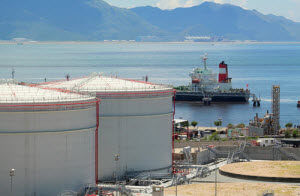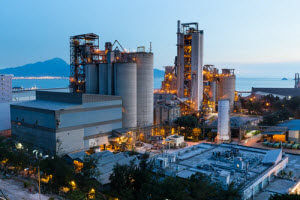Petrochemical Success Leading to Surplus of Global Plastics
The success of petrochemical industries across the world is leading to a global surplus of polyethylene (PE) and polypropylene (PP), two of the most common plastics, according to a recent report from the IHS research firm. Between 2015 and 2020, roughly more than 24 metric tons of PE capacity is predicted to be added to the world’s global supply.
However, the surplus of global plastics will have some effects on petrochemical industries in countries across the world.
Growing Petrochemical Industry in North America and China
 North America and China are predicted to produce the majority of the surplus of plastics in the coming years.
North America and China are predicted to produce the majority of the surplus of plastics in the coming years.
With more cost-effective production options thanks to the surge of shale gas-derived feedstock, the United States is expected to add about 8 million metric tons of new PE capacity to the world’s global supply. This will boost its net export position of plastics and rebalance the global chemical trade flows that have favored the Middle East for decades.
According to Nick Vafiadis, global business director of polyolefins and plastics for IHS Chemical, North American converters will also benefit from the oversupply. “In the near-term, this excess capacity is good news for North American converters, who will be more competitive on a global basis due to the increased competition associated with the PE capacity expansions,” he said.
In China, the country’s growing petrochemical industry will contribute a great deal to the surplus of plastics within the next few years as well. IHS expects China to add about 17 million metric tons of new PE and PP capacity to the world’s global supply.
Effects on Global Petrochemical Industries
 The IHS report also states that the surplus of plastics can have negative effects on the global petrochemical industry. “The U.S. and China are now competing with the Middle East for global PE/PP market share which should have significant impact on pricing and margins,” Vafiadis said.
The IHS report also states that the surplus of plastics can have negative effects on the global petrochemical industry. “The U.S. and China are now competing with the Middle East for global PE/PP market share which should have significant impact on pricing and margins,” Vafiadis said.
He goes on to say, “There will be significant trade imbalances as we see North America and the Middle East both add more PE capacity than is warranted for their domestic markets, so exports will be key for producers.”
IHS predicts that prices and profits will decline and plans to expand or build petrochemical plants can be delayed or cancelled because of this. According to FuelFlex.com, Ascend Performance Materials, a Houston, TX-based company, has already delayed construction of its propane dehydrogenation plant indefinitely.
It’s clear that the surplus of global plastics would present some negative effects on petrochemical industries. However, Vafiadis mentions that with low oil prices, the environment can be even more attractive for new plastic applications, which can promote new innovations in PE and PP technologies.
As global plastic production grows, CPV Manufacturing is proud to serve the petrochemical industry with high-quality valves and fittings. To learn more about the products that we offer, contact us now.

